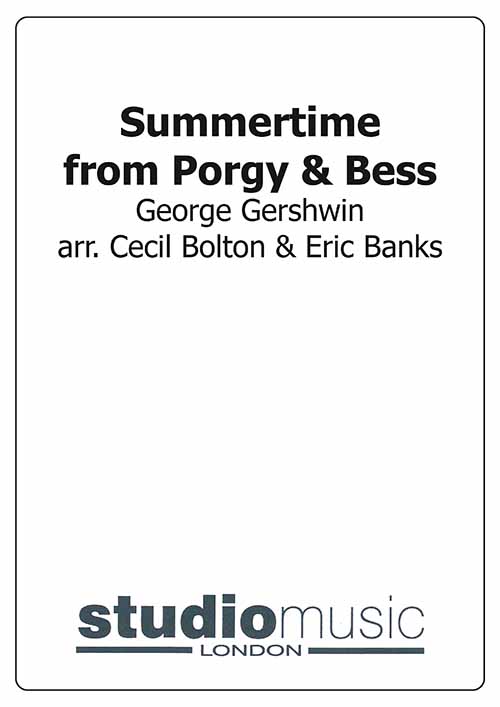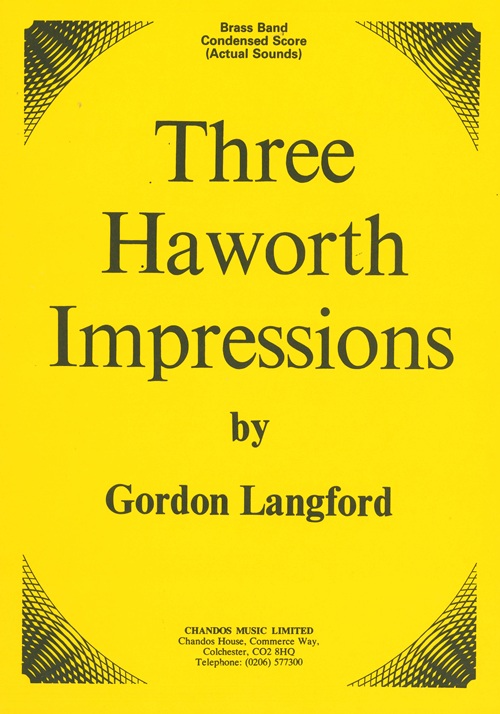Results
-
 £50.90
£50.90SLOVAK WINE-CZARDAS (Flugel Horn or Cornet Solo with Brass Band) - Hudec, Adam
Grade: Medium.
Estimated dispatch 7-14 working days
-
 £44.95
£44.95SONG AND DANCE (Cornet Solo with Brass Band Set)
Estimated dispatch 7-14 working days
-
 £50.90
£50.90SONG OF THE INDIAN GUESTS (Cornet or Flugel Horn Solo with Brass Band) - Rimsky-Korsakov, Nikolai - Casentieri, Martin
Grade: Easy/Medium.
Estimated dispatch 7-14 working days
-
 £37.95
£37.95Summertime (Soprano Cornet Solo with Brass Band - Score and Parts) - Gershwin, George - Banks & Bolton
from Porgy and BessPlease note that this set comes with a condensed score
Estimated dispatch 7-14 working days
-
 £26.50
£26.50The Caledonian (Cornet Solo with Brass Band Set) - Allison, W.A.
Estimated dispatch 7-14 working days
-
 £35.00
£35.00The Green Hornet (Cornet Solo with Brass Band - Score and Parts) - May, Billy - Morrison, Alan
-
Estimated dispatch 7-14 working days
-
 £85.00
£85.00Three Haworth Impressions (Brass Band - Score and Parts) - Langford, Gordon
A wonderful three movement suite which conjures up fabulous musical imagery of the lands of northern England. Well worth including as a concert item in your next programme, but this great original composition should really should be set again as a test-piece soon - rewarding musically for audience and bandsmen alike.Includes:TOP WITHENS - A GENERAL EVOCATION OF THE ATMOSPHERE OF WUTHERING HEIGHTS The sinister opening motif symbolises the influence of the evil Heathcliffe, Soon this motif experiences several changes of character in order to portray emotions other than those of hatred and jealousy. The overall mood is, however, one of gloom and foreboding.THE THREE BELLS This is a reference to the pseudonyms adopted by Ann, Charlotte and Emily Bronte. The music begins with three "bell"-notes; Ab for Acton Bell, Cb for Currer Bell and Eb for Ellis Bell, and these three notes form the basis of a wistful waltz tune. Again the mood is rather sombre -- save for a brighter middle section -- and the opening motif from "Top Withens" is to be heard, again symbolising the frustrations and ill-fortune by which their lives were plagued.THE WORTH VALLEY RAILWAY The Brontes were not the only people in Haworth and not all is desperation and gloom. The third impression is a celebration of the victory of the people of Haworth in their fight to retain their railway. The nine-eight rhythm of a slow train is prominent, and our once-sombre motif is transformed into a triumphant fanfare.Duration: 12.00Please note that there are only 3 solo cornet parts included in this set
Estimated dispatch 7-14 working days
-
 £16.00
£16.00Three Haworth Impressions (Brass Band - Score only) - Langford, Gordon
A wonderful three movement suite which conjures up fabulous musical imagery of the lands of northern England. Well worth including as a concert item in your next programme, but this great original composition should really should be set again as a test-piece soon - rewarding musically for audience and bandsmen alike.Includes:TOP WITHENS - A GENERAL EVOCATION OF THE ATMOSPHERE OF WUTHERING HEIGHTS The sinister opening motif symbolises the influence of the evil Heathcliffe, Soon this motif experiences several changes of character in order to portray emotions other than those of hatred and jealousy. The overall mood is, however, one of gloom and foreboding.THE THREE BELLS This is a reference to the pseudonyms adopted by Ann, Charlotte and Emily Bronte. The music begins with three "bell"-notes; Ab for Acton Bell, Cb for Currer Bell and Eb for Ellis Bell, and these three notes form the basis of a wistful waltz tune. Again the mood is rather sombre -- save for a brighter middle section -- and the opening motif from "Top Withens" is to be heard, again symbolising the frustrations and ill-fortune by which their lives were plagued.THE WORTH VALLEY RAILWAY The Brontes were not the only people in Haworth and not all is desperation and gloom. The third impression is a celebration of the victory of the people of Haworth in their fight to retain their railway. The nine-eight rhythm of a slow train is prominent, and our once-sombre motif is transformed into a triumphant fanfare.Duration: 12.00Please note that there are only 3 solo cornet parts included in this set
Estimated dispatch 7-14 working days
-
 £24.95
£24.95TRUMPETERa????S LULLABY, A (Cornet Solo with Brass Band Set)
Estimated dispatch 7-14 working days
-
 £24.95
£24.95TUDOR TRUMPETERS TUNE (Cornet Solo with Brass Band Set)
Estimated dispatch 7-14 working days
